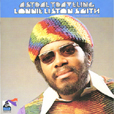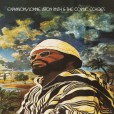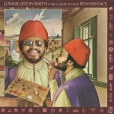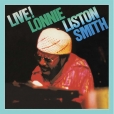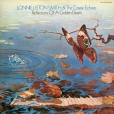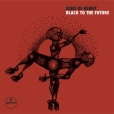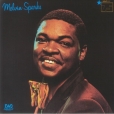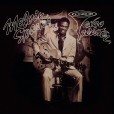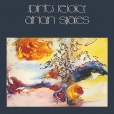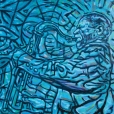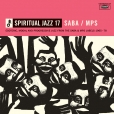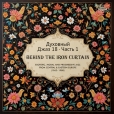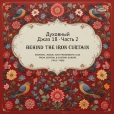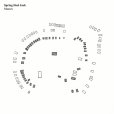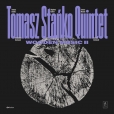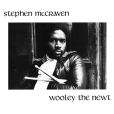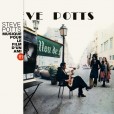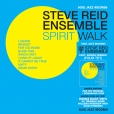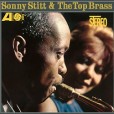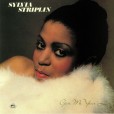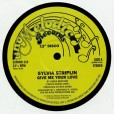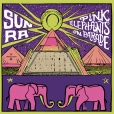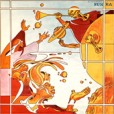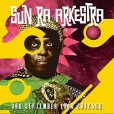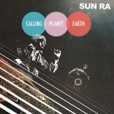Your basket is empty

From the same year Smith left the Miles Davis group, the title track is such an almighty classic, it has eclipsed this lovely LP.
Desert Nights, Voodoo Woman and the dubby Shadows are variations of the same ecstatically cosmic, limberly funky modal jazz as the beloved opener, centred on the sublimity of Cecil McBee’s bass-playing. Summer Days and My Love go Latin. The tenor voice of Lonnie’s bro Donald leads a version of Horace Silver’s Peace (with new, yearning lyrics by Doug Carn).
‘Ace is celebrating the fiftieth anniversary of the original Flying Dutchman release, with an ultra-high quality deluxe vinyl edition of the album. Using the original album master tape we decamped to Frank Merritt’s East London studio, the Carvery, for an all-analogue cut of the album. It has never sounded better!
‘We have housed this in a tip-on a laminated gatefold sleeve, which has allows Jack Martin’s original painting of Lonnie to shine as never before. We have also a fully illustrated sleeve note by Frank Tope, telling the story of how the record took its journey through the universe from its spiritual jazz route to become a clubland anthem. This story is told with help from Gilles Peterson, Norman Jay, and others.’
His final Flying Dutchman: classic jazz-fusion, imbued with Latin rhythms.
His brother Donald is in fine voice throughout, but that’s Lonnie himself singing on the grooving, anthemic opener; a kind of reprise of Expansions.
Next up, Renaissance.
‘Producer Bob Porter brought the Texan guitarist to Prestige in 1970, where he recorded three albums as a leader and over a dozen as a session player, showing himself to be a wizard at playing funky licks and energised solos.
When Porter left Prestige to set up Eastbound Records in Detroit — as a branch of Westbound Records — Sparks followed on, and Texas Twister was his label debut, in 1973. The incredible rhythm section of Idris Muhammad, Sonny Phillips, Caesar Frazier and Wilbur Bascombe make this album a sure-fire funk bomb. On the front-line, a hard hitting horn section that includes Cecil Bridgewater and John Faddis is a perfect foil for Sparks.
‘With the monster acid jazz club cut Whip Whop and the frenetic Texas Twister, as well as a beautiful rendition of the Four Tops Ain’t No Woman (Like The One I Got).’
‘At a distance of more than forty years, the radicalism and significance of African Spaces can be seen more clearly. Ambitious, uncompromising, and resolutely progressive, it represents a unique high-water mark in South Africa’s long musical engagement with the newest developments in American jazz — a response to the cosmic call of Return To Forever, and an answer to Miles’ On The Corner… a complex and challenging jazz fusion that shifted the terms of South Africa’s engagement with jazz towards new music being made by pioneers such as Chick Corea, Weather Report, John McLaughlin, Pat Metheny and others.
‘This debut recording is one of the key documents in the South African jazz canon. Emerging in the aftermath of the 1976 Soweto uprising, and taking its place alongside the crucial mid-1970s music of Malombo, Abdullah Ibrahim, and Batsumi, it is a defining but unsung musical statement of its era.’
A compelling range of covers and homages, all-time heroes and new discoveries, to lift the spirits.
‘Masses is an utterly unexpected, and utterly gripping, collaboration between the East London duo, Spring Heel Jack, and a group of top-flight improvisers, drawn largely from New York’s ascendant free jazz network but also including Evan Parker and microtonal violinist Matt Maneri.
‘If there are precedents for this particular mix, in which studio-processed audio environments are played back in real time as the triggers for, and fixed components in, a series of group improvisations, they feel few and far between. George Rusell’s 1967 Electronic Sonata For Souls Loved By Nature, Bob Ostertag’s Say No More Project, and some of Evan Parker’s explorations in the realm of synergetic electroacoustics provide three possible and very different models. But as Matthew Shipp points out, Masses ‘creates its own space and time’.
‘Masses opens a tunnel on a space where matter and anti-matter can co-exist without the vernacular power of either state being compromised or diminished. It is a total triumph.’
(The Wire).
Recorded in 1999 in NYC, with Matt Shipp, Roy Campbell, Matt Manieri, William Parker, and co.
This expert drummer spent long stints with Archie Shepp and Sam Rivers; and he’s played with scores of other jazz greats, like Mal Waldron, Charles Tolliver, Yusef Lateef, Billy Harper, David Murray, and so on. He toured Europe with Marion Brown in 1977 — recording La Placita live in Willisau — and the following year cut Wooley The Newt for the saxophonist’s Sweet Earth label. His son Makaya sampled it recently on We’re New Again, his Gil Scott-Heron rework.
Free, grooving, spiritual jazz. Check it out.
This saxophonist came through with the likes of Roy Ayers and Joe Henderson in the sixties, before hooking up with Steve Lacy in Paris in 1973. In this soundtrack composed for a film by his friend Joaquin Lledó — entitled Le Sujet Ou Le Secrétaire Aux Mille Et Un Tiroirs — he was joined by members of the group around Lacy, and diverse co-conspirators including friends from the funk outfit Ice, French accordionist Joss Bassellion, and none other than Jef Gilson at the mixing desk. It’s a dazzling, intensely entertaining blend of modal, cosmic and spiritual jazz, free funk, dirty grooves, heavy jams, bistro boogie and Javanese wah-wah.
Top-quality, all-analogue reissue by Speakers Corner.
Joyous, uniquely Arkestral renditions of songs from Disney films like Peter Pan, Sleeping Beauty, Snow White & the Seven Dwarfs, Dumbo, and Mary Poppins.
Ra loved this repertoire, faithfully re-visiting it over the decades. He once had his band billed as Sun Ra & His Disney Odyssey Adventure Arkestra.
All previously unissued; drawn from concert performances, 1985-1990.
Another unmissable Ra LP — previously impossible to find — from the same 1972 sessions as Space Is the Place. The opener Pan Afro is a modal tear-up bossed by Gilmore’s saxophone; the title track is a hugely enjoyable, side-long, Ra-led space chant.
‘One thing is certain about a Sun Ra performance: You never know what to expect. Last week at the Chicago Jazz Festival, he presented a huge troupe of musicians, dancers and acrobats in a veritable circus of improvisation’ (John Litweiler, Chicago Tribune, September 9, 1988).
The entire show as originally broadcast by National Public Radio in the same year.
